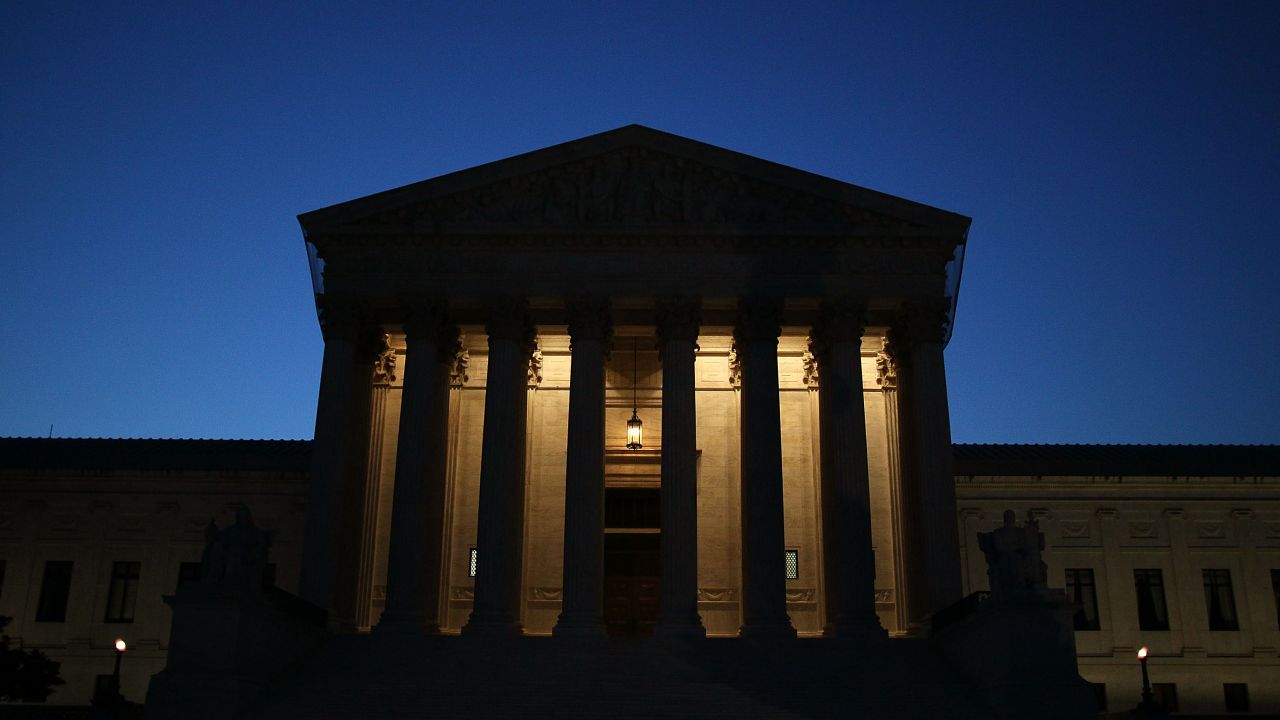
More and more, corporations have been successful in convincing the courts that they should have the same constitutional rights as human beings. (Photo by Mark Wilson/Getty Images)
Today was a big news day, so this is longer than usual. Sorry about that.
The day began with three Supreme Court decisions.
The first is a major victory for indigenous peoples. In a 5-4 decision in McGirt v. Oklahoma, the court upheld the claim of the Creek Nation that a large chunk of Oklahoma, including much of Tulsa, remains a reservation for the purposes of criminal prosecutions. This means that natives on the land cannot be tried by state court; they must be tried in tribal or federal courts. While this will affect state convictions of Creeks, tribal leaders say it will have little impact on non-natives.
Oklahoma had argued that while Congress had initially established a reservation for the Creeks, it had ended that reservation when it pushed Creek individuals onto their own farms in the late nineteenth and early twentieth centuries. But Congress had never explicitly gotten rid of the reservation. Neil Gorsuch joined the majority and wrote the decision, saying “Today we are asked whether the land these treaties promised remains an Indian reservation for purposes of federal criminal law. Because Congress has not said otherwise, we hold the government to its word.”
The decision details the history of US and Creek interactions, and notes that the federal government often went back on the promises it made to the Native Americans. The decision holds the federal government to the treaties it negotiated with the Creeks, and as such, the decision has the potential to affect a number of other conflicts in which federal agreements were overruled by other state or federal actions, but were never explicitly ended. The decision certainly has the potential to apply to four other reservations in eastern Oklahoma whose histories mirror that of the Creek lands.
The other two decisions handed down today concerned whether or not Congress and a New York prosecutor could gain access to Trump’s financial records from before he became president. Trump’s lawyers had argued that a president could not be investigated while in office, no matter what crimes he might have committed. A 1973 Department of Justice memo established that presidents could not be indicted while in office, but Trump’s lawyers have pushed this concept to say that a president cannot be investigated, either.
The Supreme Court disagreed. By a vote of 7-2, in Trump v. Vance, the Supreme Court upheld a criminal subpoena issued by Cyrus Vance, Jr. of the Manhattan District Attorney’s Office on behalf of a grand jury that wanted financial records to look into hush money paid to adult film actress Stormy Daniels and a Playboy model Karen McDougal. In an opinion written by Chief Justice John Roberts, the court rejected the argument that a president cannot be investigated for a crime. “In our judicial system,” Roberts wrote, “’the public has a right to every man’s evidence.’ Since the earliest days of the Republic, ‘every man’ has included the President of the United States.” Clarence Thomas and Samuel Alito dissented.
The decision left room for Trump to challenge the subpoenas on specific grounds, and it is likely he will do so, but he has lost the main point.
Trump v. Mazars USA, LLP, involved whether Congress had a right to investigate the president. Three House committees– the House Committee on Financial Services, the House Committee on Oversight and Reform, and the House Intelligence Committee– issued subpoenas to Trump’s accountants and bankers for financial information relating to money laundering and foreign interference in US elections. Trump had sued Mazars to stop the firm from handing over the information.
Again by a 7-2 vote, with Clarence Thomas and Samuel Alito dissenting, the court decided that Congress did, in fact, have the right to subpoena information from the president, but because Congress had to observe the separation of powers, the conditions under which Congress subpoenaed presidential information must be limited to legitimate lawmaking needs rather than attempts at law enforcement. The court sent the case back to lower courts for further review to consider whether the subpoenas met the criteria required to preserve the separation of powers.
The Supreme Court noted that Congress and the president had always in the past found a way to resolve their differences over issues of subpoenas, and that “this dispute is the first of its kind to reach the Court,” so the justices wanted to be careful not to mess up a system that had worked well for 200 years (and yes, it sure seems like there’s a dig at Trump there).
Curiously, the decisions give more leeway to state prosecutors than to Congress in investigating a president.
It is not clear that either case will force the production of Trump’s financial documents before the election, although that production is not impossible if the lower courts, which will now see reworked subpoenas, move quickly. Law professors and former government lawyers Neal Katyal and Joshua A. Geltzer argued in the Washington Post today that such speed was both possible and likely.
Still, the decisions are huge. Trump has argued that the president is untouchable. The Supreme Court, including two of Trump’s own appointees, has repudiated his argument entirely.
After the decisions were announced, Trump melted down on Twitter. “The Supreme Court sends case back to Lower Court, arguments to continue. This is all a political prosecution. I won the Mueller Witch Hunt, and others, and now I have to keep fighting in a politically corrupt New York. Not fair to this Presidency or Administration!…. Courts in the past have given “broad deference”. BUT NOT ME!” He took shots at South Carolina Senator Lindsey Graham, a key supporter who chairs the Senate Judiciary Committee, for not prosecuting members of the Obama administration for allegedly committing crimes against him.
Former federal prosecutor and legal commentator Renato Mariotti responded: “No court has ever held that a president was ‘immune’ to a grand jury subpoena or Congressional subpoena. Your lawyers raised absurd arguments that were soundly rejected by seven out of the nine Supreme Court justices, including two justices you appointed.”
Phew! But that was not all that happened today.
Former US Attorney for the Southern District of New York Geoffrey Berman testified today before the House Judiciary Committee about the circumstances surrounding his firing. Berman said that Attorney General William Barr had pressured him to resign on June 18, offering him a number of other government positions and warning him that if he did not take one of the other jobs, he would be fired and his career wounded. When Berman refused, in the interests of continuing the cases on which his office was working, Barr simply announced on June 19 that Berman had resigned. Barr seemed desperate to install a new US Attorney for the Southern District of New York, and Democrats in Congress will want to know why.
Also today, the Chairman of the Joint Chiefs of Staff, General Mark Milley, appeared before the House Armed Services Committee and took a stand against the Confederate flag, Confederate statues, and Confederate names on US Army bases, in strong opposition to Trump. Talking of those Confederate generals whose names are now on US bases, Milley said, “those officers turned their back on their oath…. It was an act of treason, at the time, against the Union, against the Stars and Stripes, against the US Constitution.”
At the same hearing, Secretary of Defense Mark Esper confirmed that he had, in fact, been informed that Russia had offered money to Taliban fighters to kill American and allied troops in Afghanistan, so it was not a “hoax,” as the president has insisted. While Esper tried hard to speak carefully enough that he did not antagonize the president, defense officials have told CNN that both Esper and Milley are worried that Trump is politicizing the military, and are determined not to let him drag it into the election campaign.
It appears Trump’s position is weakening. This week, a number of Republican senators announced they were taking a pass on the Republican National Convention in Jacksonville, Florida, next month, and this afternoon, Senate Majority Leader Mitch McConnell suggested that he, too, might skip it. Earlier this week, his spokesman had said that McConnell “has every intention” of attending the convention, but last week, a Republican source told Reuters that unless Trump’s performance improved by August, McConnell might have to advise Republican Senate candidates to keep their distance from Trump in order to try to hold on to the Republican majority in the Senate.
It seems that McConnell might be making that call earlier than expected.
We are pleased to be presenting daily posts from Heather Cox Richardson’s “Letters From an American“ email newsletter. You can sign up to receive it in your inbox here.




